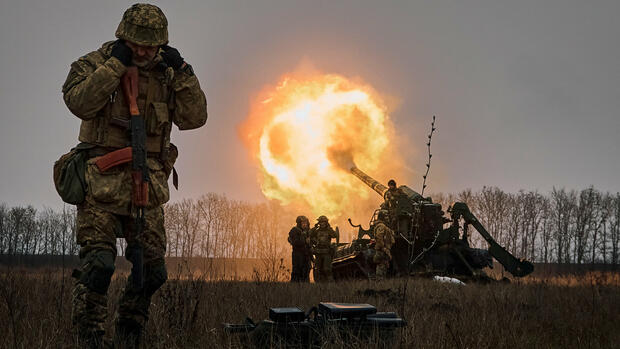Wagner boss complains about high losses and threatens to withdraw from Bachmut
The head of the Russian Wagner mercenary unit, Yevgeny Prigozhin, has threatened to withdraw his troops from the embattled city of Bakhmut in Ukraine because of the high losses caused by a lack of supplies. “Every day we have stacks of thousands of bodies that we put in the coffin and send home,” Prigozhin said in an interview with Russian military blogger Semyon Pegov published on Saturday. Losses were five times higher than necessary because of the lack of artillery ammunition, he complained.
He wrote a letter to Defense Minister Sergei Shoigu to get supplies as soon as possible. “If the ammunition deficit is not replenished, we are forced – in order not to run like cowardly rats afterwards – either to retreat in an organized manner or to die,” said the 61-year-old. He would probably be forced to withdraw some of his troops, but that would mean that the front would collapse elsewhere, he warned. There has been fighting over Bakhmut in eastern Ukraine for months. Casualties are high on both sides, with the Ukrainian defenders only holding a small part west of the city under their control.
The Ukrainian army is ready for a counteroffensive. She’s just waiting for better weather so that the soft ground doesn’t stop her from making progress. Prigozhin predicts the offensive will begin by May 15. At the same time he renewed his sharp criticism of the leadership of the Russian military. It lacks discipline and organization.
Prigozhin can afford the criticism because he is considered a confidante of Russian President Vladimir Putin, whom he fed when he was an official in St. Petersburg. That is why he is also called “Putin’s cook”. According to research by independent journalists, Prigozhin made good money from the war in Ukraine through contracts with the Ministry of Defense in Moscow. The media portal Moschem objasnit recently reported that Prigozhin’s companies raked in a record sum of 4.7 billion rubles (about 52 million euros) through these contracts in 2022.
